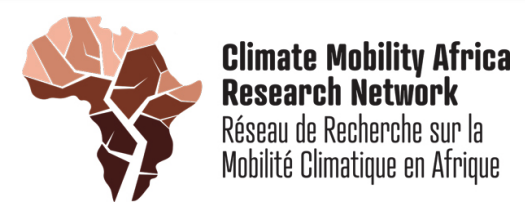
CMARN is Co-Chaired by the Kaldor Centre and Masinde Muliro University of Science and Technology.
 Ahead of COP27, we – the Climate Mobility Africa Research Network (CMARN) – call on governments to further recognise the impacts of climate change on human mobility and prioritise the development and implementation of effective laws and policies based on current knowledge and sound evidence. Action taken now, in collaboration with affected communities, local researchers, civil society and international organisations, could significantly reduce the risks associated with climate mobility well into the future.
Ahead of COP27, we – the Climate Mobility Africa Research Network (CMARN) – call on governments to further recognise the impacts of climate change on human mobility and prioritise the development and implementation of effective laws and policies based on current knowledge and sound evidence. Action taken now, in collaboration with affected communities, local researchers, civil society and international organisations, could significantly reduce the risks associated with climate mobility well into the future.
The evidence is clear that climate change reshapes human mobility patterns. Climate change can act as a risk multiplier – interacting with other social, economic and political factors to drive movement. The adverse effects of climate change can also render people immobile, by undermining the resources needed to move out of harm’s way.
On the African continent, most human mobility in the context of disasters and climate change occurs within countries or between neighbouring countries, rather than to distant high-income countries. In 2021 alone, the Internal Displacement Monitoring Centre identified 2.6 million new internal displacements in the context of disasters in Sub-Saharan Africa. The World Bank’s Groundswell Report II projects that, without concrete climate and development action, climate change could contribute to the migration of more than 105 million people within their own countries in Africa due to water stress, reduced crop productivity and sea level rise.
Furthermore, the IPCC has highlighted that ‘migration is an important and potentially effective climate change adaptation strategy in Africa and must be considered in adaptation planning’. Similarly, the recently launched African Union Climate Change and Resilient Development Strategy and Action Plan (2022-2032) acknowledges that ‘movement or migration is an adaptation strategy employed by hundreds of millions of people, both in response to negative stimuli and as a means of pursuing a worthwhile life’ and that there may be a considerable role for governments in normalising and facilitating the movement of people.
The 18 States that already signed the 2022 Kampala Ministerial Declaration on Migration, Environment and Climate Change pledged to address ‘critical matters of migration, environmental and climate change and its adverse impacts on people and livestock’. This includes commitments to establish and strengthen systems to generate ‘accurate, timely data and information on climate change impacts on human mobility’ and to address ‘knowledge gaps by understanding and applying indigenous knowledge and practices in the development of appropriate adaptation responses’.
In Africa, research related to climate change faces severe data constraints, and inequities in funding and research leadership, thereby reducing adaptive capacity on the continent. According to the IPCC, ‘the number of climate research publications with locally based authors are among the lowest globally’. This limits the value of available research and evidence for governments and policy makers, as ‘research led by external researchers may focus less on local priorities’.
The 18 leaders who signed the Kampala Declaration are hoping that its priorities will be implemented by governments across the continent. Beyond Africa, the Kampala Declaration has the ambition of raising the importance of human mobility through the COP.
When COP convenes in November, governments across Africa and beyond have the opportunity to address existing constraints and inequities in climate-related information, action and finance related to mitigation, adaptation and loss and damage. Under the leadership of Egypt, ‘Africa’s COP’ must address Africa’s challenges, including those relating to human mobility in the context of disasters, climate change and environmental degradation.
CMARN’s key messages to governments are part of its objective to support evidence-based development and implementation of laws and policies relating to displacement and migration in the context of disasters and climate change in Africa. The key messages have been developed collaboratively with the input of researchers working across the African continent with diverse expertise in fields of law, policy, geography, communications and social sciences.
ADVANCING LAW AND POLICY RESPONSES TO CLIMATE MOBILITY IN AFRICA: KEY MESSAGES TO GOVERNMENTS FOR COP 27
1. Facilitate access to and provide relevant and accessible information about climate mobility (including data, evidence, laws and policies) to affected communities
2. Develop and implement relevant international and regional frameworks to ensure that all measures to address climate mobility are gender-responsive and based on relevant human rights
3. Support local research, led by local researchers, to inform law and policy developments that are evidence-based and reflect the lived experiences of affected communities
4. Facilitate collaboration and dialogue between different levels of government, inter-governmental organisations and regional institutions to ensure integration between global, regional and local approaches to climate mobility
5. Provide opportunities for collaboration and dialogue on climate mobility between researchers and policymakers to facilitate sharing of knowledge and expertise.
6. Take a holistic approach to addressing climate mobility, taking into account the interaction between climate change, conflict, poverty, livelihoods and food security as drivers of human mobility.
7. Prioritise local and indigenous knowledge and perspectives in all measures to address climate mobility.
8. Work collaboratively with all stakeholders – including affected communities, researchers, international organisations and civil society – to facilitate an inclusive and participatory approach to addressing climate mobility.
Action taken now in line with these key messages could help to advance relevant laws, policies and practices that ensure better protection and safety for those displaced or moving in the context of disasters and climate change
The Key Messages will be officially launched on Thursday 27 October, 11:00am EAT/Nairobi (7:00pm Sydney/AEDT). To read the key messages in full (in English and en Francais) or to join the launch, visit the CMARN website here.
